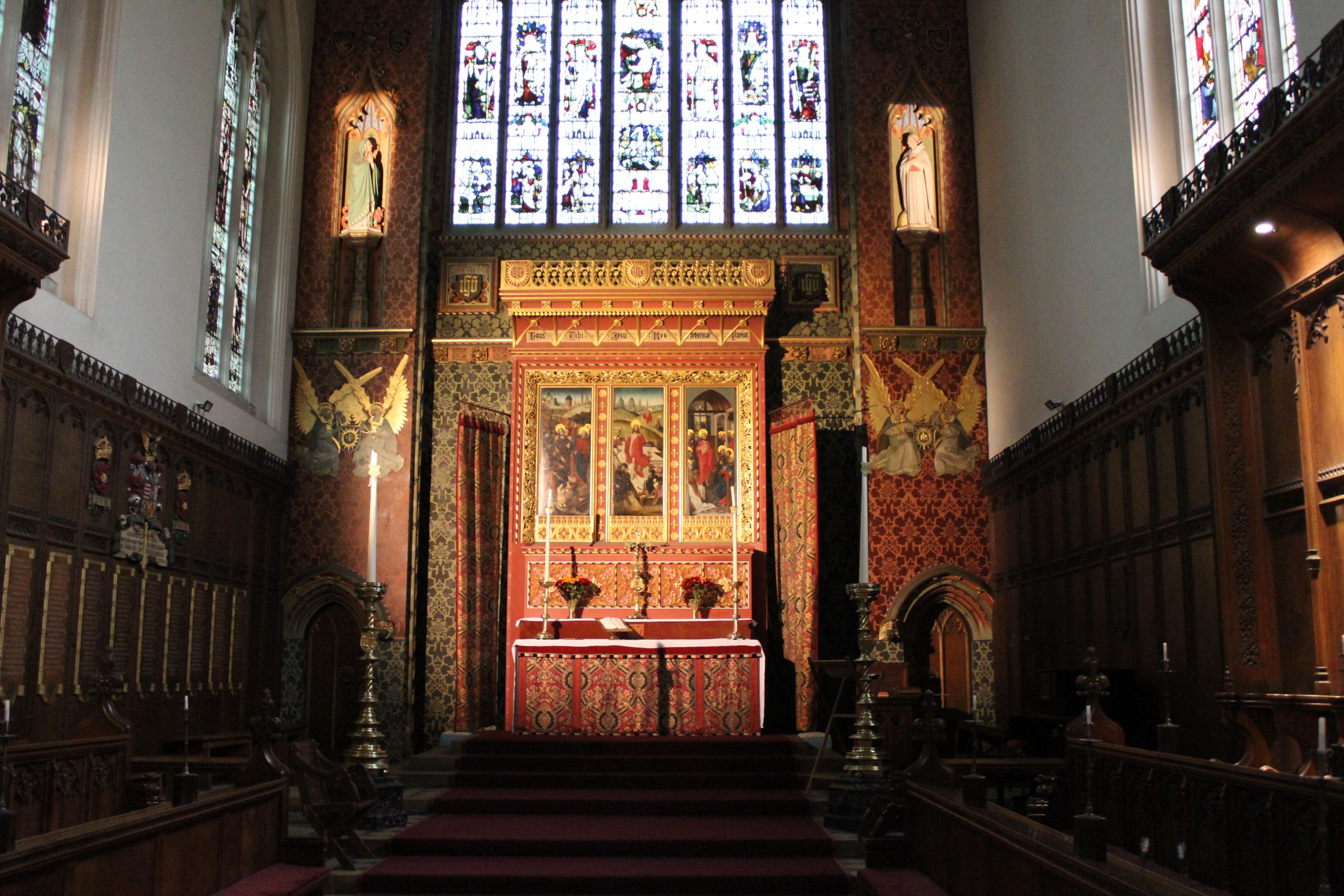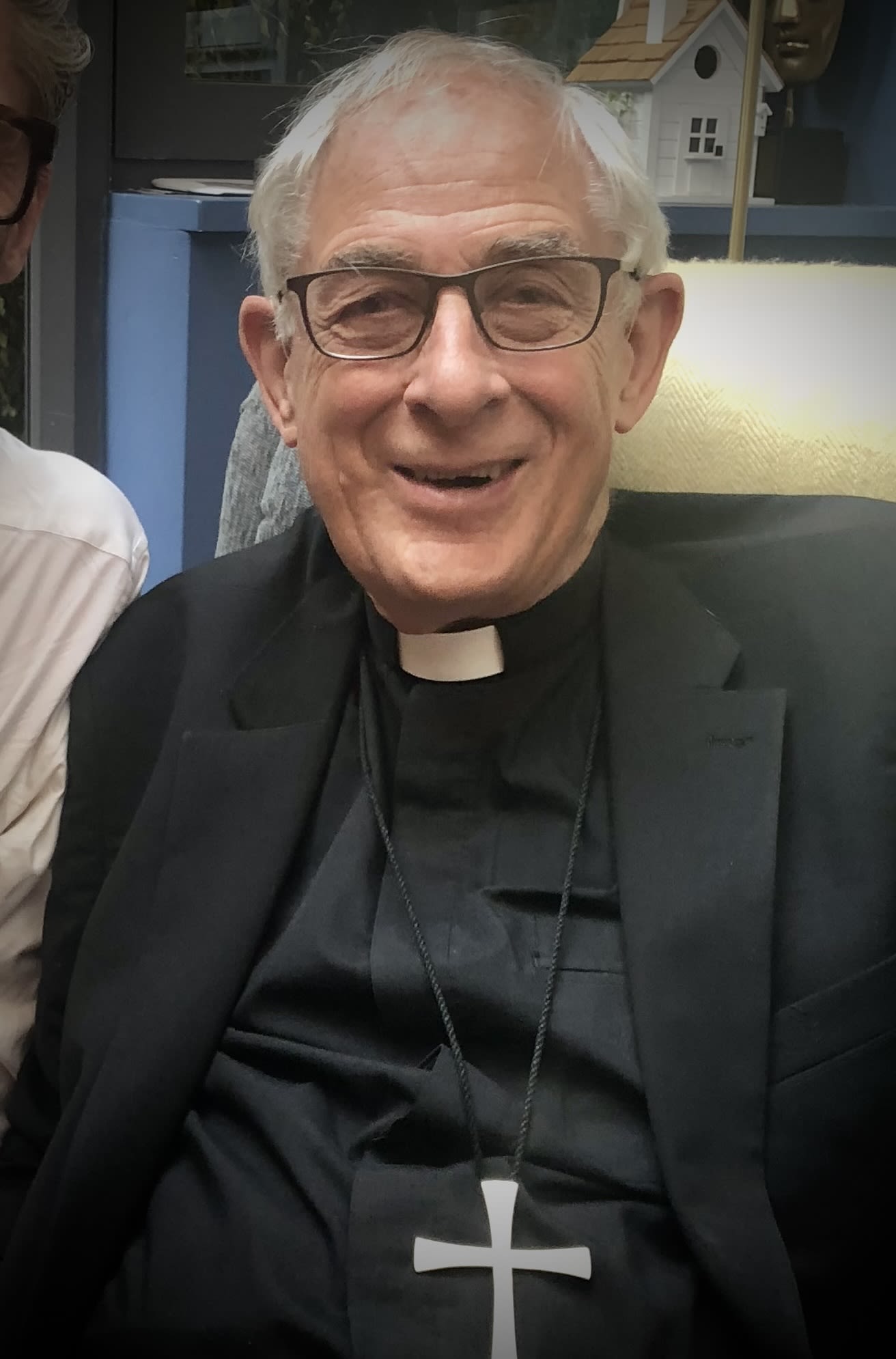Mark Santer (1957)
1936-2022

Mark Santer was born in 1936, son of Canon Eric Santer and Phyllis Barlow.
At school, Marlborough College, where he had received a clergy scholarship, he displayed a passion for the classics and languages, studying Latin, Ancient Greek and Hebrew, and he arrived in Queens' in 1957 to read Classics, and later Theology. He was frequently the organist in the college chapel.
During his time in National Service (before Queens') he received his calling to be ordained. He studied at Westcott House in Cambridge and was ordained priest in 1964, the same year he married Henriette Weststrate, a psychologist from Amsterdam.
His first job was as both curate and tutor at Cuddesdon College, under the principalship of Robert Runcie, later Archbishop.
In 1967, Mark became Fellow and Dean of Clare College, Cambridge, and, in 1973, Principal of Westcott House.
In 1981, Mark became Bishop of Kensington, consecrated in St Paul’s Cathedral. He had made no secret of his left-of-centre politics, his lack of enthusiasm for the establishment of the Church of England, and his anti-nuclear convictions.
In Kensington, Mark established a collegiate relationship with his area deans and archdeacon. He established a pioneering ministry-development review programme.
In 1983, he was appointed as the Anglican co-chairman of the second Anglican-Roman Catholic International Commission (ARCIC II), an appointment made by Archbishop Runcie and the Anglican Consultative Council. ARCIC was to occupy him for 15 years.
He became Bishop of Birmingham in 1987, amid speculation that Margaret Thatcher, then Prime Minister, had chosen him in preference to his close friend Jim Thompson, Bishop of Stepney. Thompson was said to be “too left-wing” for some Conservative MPs, but, in Mark, Birmingham certainly did not get a Conservative. In retrospect, the diplomatic skills of Archbishop Runcie can be detected in the two names offered to the Crown; Thompson went to Bath & Wells in 1991.
In Birmingham, Mark spoke of the city’s inheritance of faith in both its Congregational history and that of John Henry Newman. He also attacked selfishness turned into acceptable social principle, and preached to the West Midlands Judiciary, challenging them to press for a reform of sentencing policy and the issue of overcrowded prisons. The following day, Douglas Hurd, Home Secretary, asked for a private meeting to discuss the issues that Mark had rightly raised. When the Gulf War started, he invited Muslim leaders to his house.
He is remembered — not just at staff meetings but also at dinner parties — for dashing to his study for a folio volume (usually Augustine) and rattling out a Latin quotation to illustrate a theological point.
In retirement from 2002, Mark also enjoyed caring for the parish of Kings Heath during an interregnum, becoming a parish priest at the end of his ministry rather than its beginning. His beloved Henriette died in 1994. Mark later, in 1997, married a close friend of hers and of the family for 30 years, Sabine Bird. She died in 2021.
He moved to Poole in 2022 to be closer to his family. He died peacefully at home on 14 August, aged 87, was able to speak with his family up until his last hours, receiving communion shortly before he died. He is survived by a sister and brother, three children, three stepchildren, and 15 grandchildren. His funeral and requiem eucharist took place at St Aldhelm’s, Branksome, on Wednesday 4 September. He chose words from Augustine for his funeral:
“There we shall rest and we shall see; we shall see and we shall love; we shall love and we shall praise.
“That is what shall be in the end without end. For what is our end but to arrive at the kingdom which has no end?”
